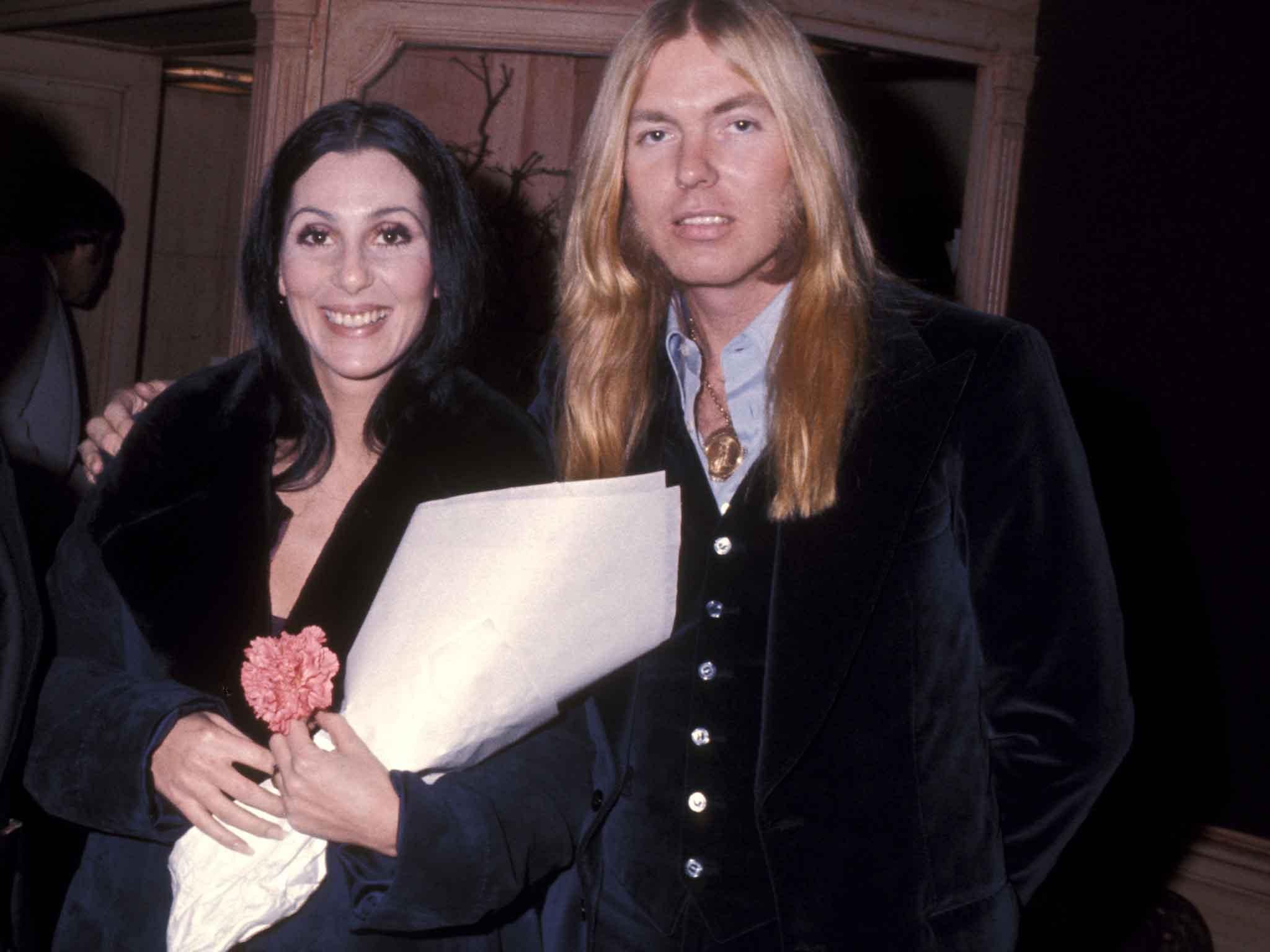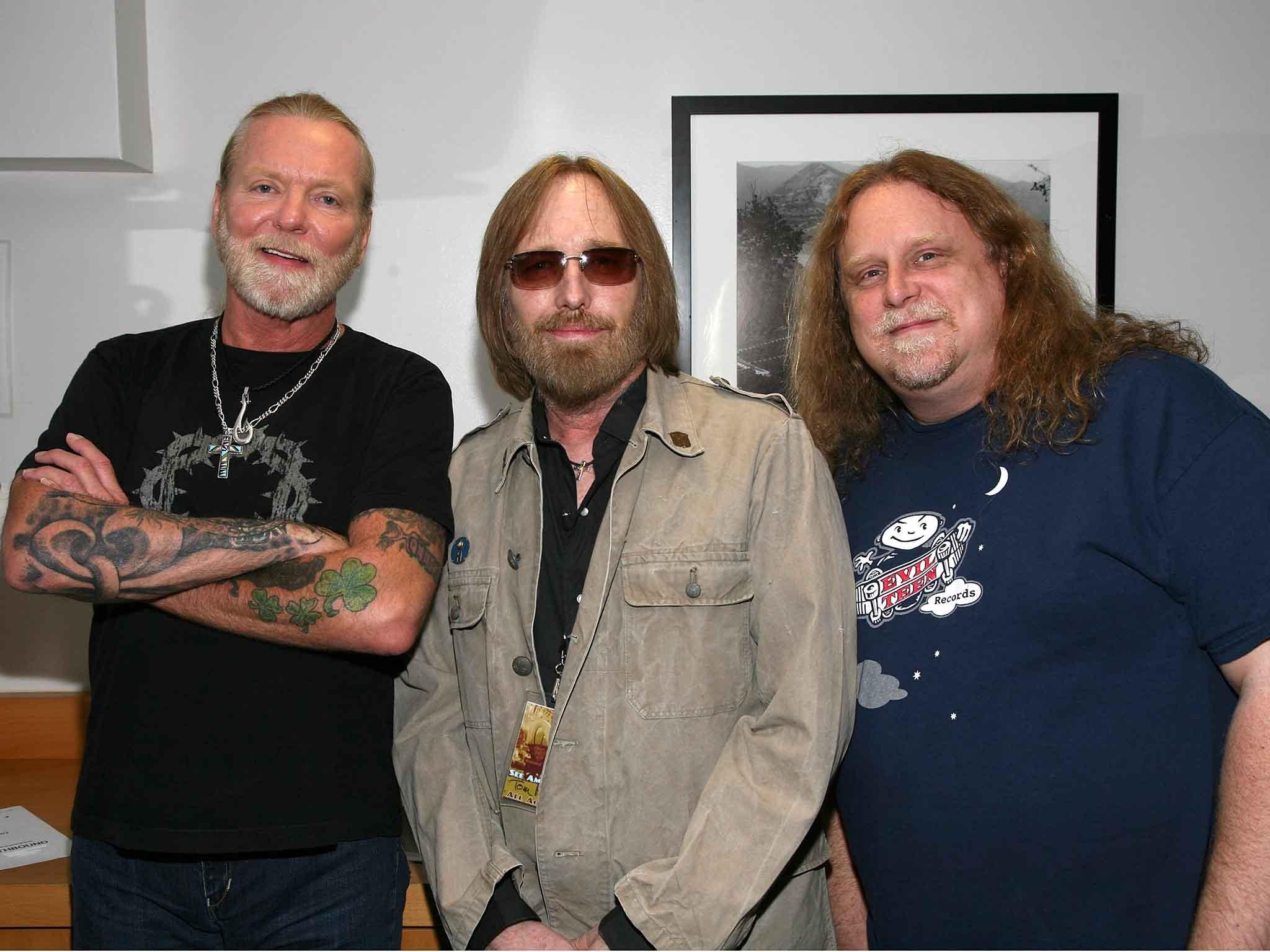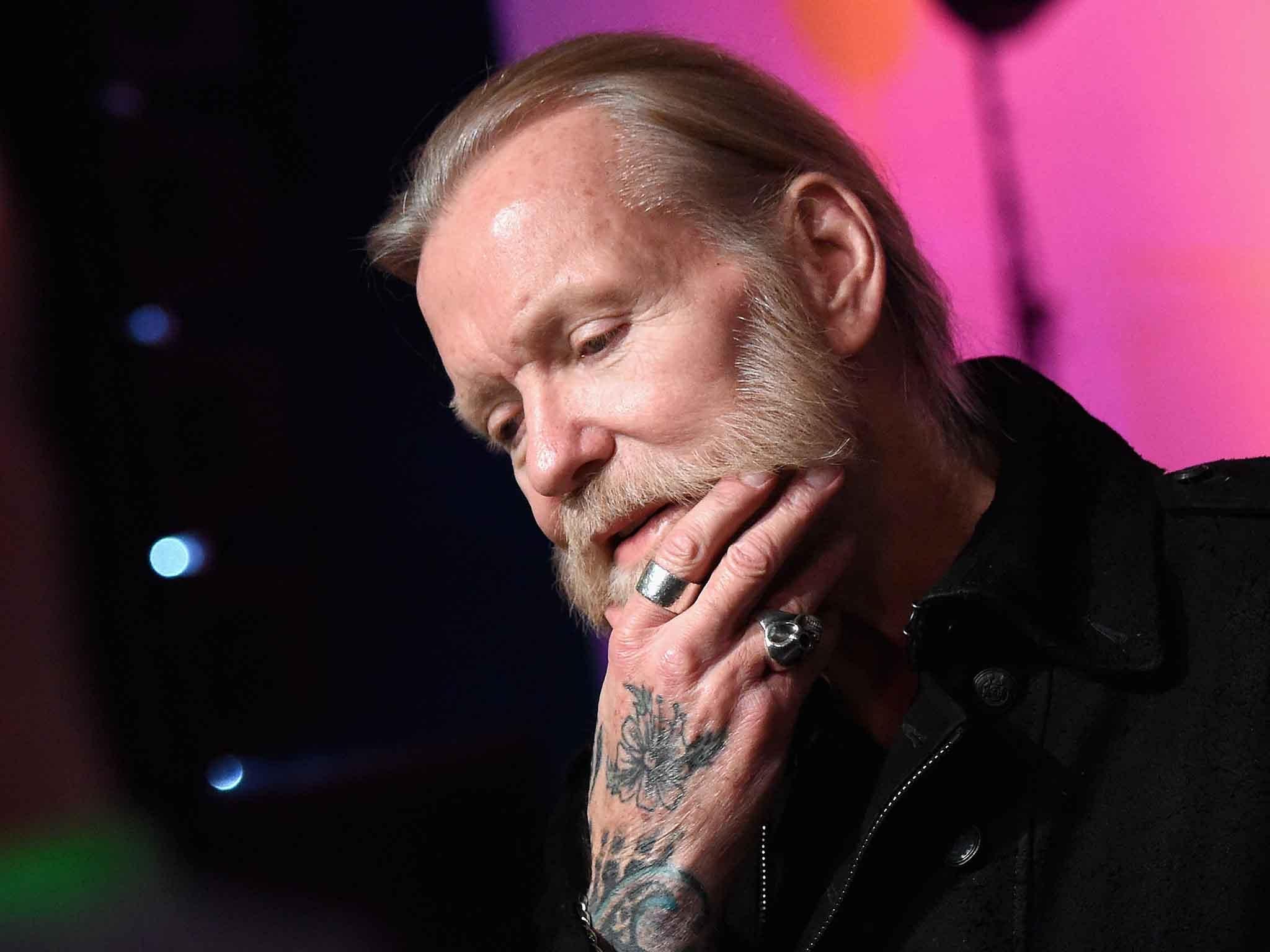Your support helps us to tell the story
From reproductive rights to climate change to Big Tech, The Independent is on the ground when the story is developing. Whether it's investigating the financials of Elon Musk's pro-Trump PAC or producing our latest documentary, 'The A Word', which shines a light on the American women fighting for reproductive rights, we know how important it is to parse out the facts from the messaging.
At such a critical moment in US history, we need reporters on the ground. Your donation allows us to keep sending journalists to speak to both sides of the story.
The Independent is trusted by Americans across the entire political spectrum. And unlike many other quality news outlets, we choose not to lock Americans out of our reporting and analysis with paywalls. We believe quality journalism should be available to everyone, paid for by those who can afford it.
Your support makes all the difference.In his 2012 autobiography, My Cross To Bear, Gregg Allman revealed how he finally saw the error of his hard-drinking, drug-ingesting southern hippie-redneck ways.
It was 1995 and the Allman Brothers Band, which he formed with his late brother Duane more than a quarter of a century earlier, were being inducted into the Rock & Roll Hall of Fame in New York.
Gregg cut an inebriated, bloated figure as he mumbled his acceptance speech. Watching it later on television he felt ashamed.
“It should have been the greatest week of my life,” he wrote. “Instead I hit an all-time low.”
After entering rehab drunk, with pockets full of Valium and vodka from the hotel mini-bar, he checked out in control of his addictions and remained clean the rest of his life. It proved a long-overdue turning point for Allman.
Previously, his extensive musical output and mercurial personal life were entangled in a way that made even Janis Joplin and Jim Morrison appear models of decorum and abstemiousness. It was sometimes difficult to distinguish whether he was better known as a blues singer, guitarist, keyboard player, writer and pioneer of “southern rock” than as the hell-raiser whose six wives (all divorced) included Cher.

Allman, who died at his home in Savannah, Georgia aged 69, recently marked 50 years as a recording artist. In 1967 he made two albums with Los Angeles’s the Hour Glass, featuring himself on organ and Duane on guitar.
Already a devotee of blues and soul, having been seduced by Muddy Waters and Otis Redding on the radio in home-town Nashville, he later called the group’s work “lifeless, poppy, pre-programmed shit”.
The brothers grew up without their father, Willis, who was murdered before Gregg turned two. In 1960 their mother Geraldine, aka Mama A, let them attend a show headlined by blues legend BB King, after which Gregg took a paper round to save up for a guitar.
The siblings formed several groups in their teens, including The Escorts after the family moved to Daytona Beach, Florida. In 1969 Duane invited Gregg to join his new project, which became the Allman Brothers Band.
Based in Macon, Georgia, their line-up included dual lead-guitars and two drummers. Gregg played keyboards and proved a strong songwriter, contributing “Whipping Post” and “Midnight Rider” to their first two albums.
The former was named in Rolling Stone magazine’s 500 Greatest Songs of All Time. The group toured heavily, building a following. “A lightbulb went off,” Gregg recalled. “We needed to make a live album.”
At the Fillmore, recorded in New York and released in 1971, was a superlative set and reached No 13 in the US. However, heroin and cocaine eroded the group’s cohesion and creativity.

Duane’s death in a motorcycle crash that year forced Gregg into a leadership role with which he was uncomfortable. His tempestuous relationship with Dickey Betts, Duane’s guitar foil, was fuelled by their escalating drug abuse. Despite the success of post-Duane LPs Eat A Peach and Brothers and Sisters, live performances suffered.
In 1973 Gregg released the first of six solo albums, Laid Back, and two years later a whirlwind romance with Cher led to their wedding in Las Vegas three days after she divorced Sonny Bono. They cut an unsuccessful album as Allman & Woman and had a son, one of his five children, before parting in 1978.
During their marriage Allman was arrested for possession of narcotics. To avoid jail he agreed to testify against his road manager, Scooter Herring, who received a 75-year prison sentence for drug-dealing. After a retrial Herring served less than five years.
While Allman claimed Herring had agreed to take the rap, his bandmates viewed his behaviour as a betrayal, leading to their break-up in 1976. Reunited within two years, they disbanded again in 1982 and re-formed in 1991, although Allman was “too drunk most of the time to care one way or the other”.
After rehab left him feeling “brand new” he found a new lease of life with the band, which fired Betts for substance abuse in 2000. He released Low Country Blues, arguably his best studio album, in 2011. Showcasing his bluesy, smoky vocals, it peaked at No 5 in the US and sold well in the UK.
But health issues finally caught up with Allman, who contracted hepatitis C and died of liver cancer, leaving his sons Devon and Elijah Blue to carry on the family trade in rock and blues.
Gregory LeNoir Allman, musician, born 8 December 1947, died 27 May 2017

Join our commenting forum
Join thought-provoking conversations, follow other Independent readers and see their replies
Comments